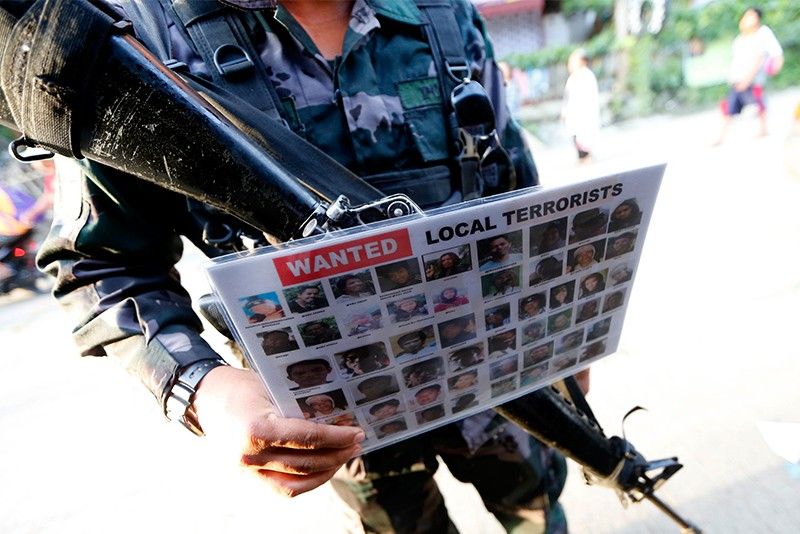Expert: Military offensives vs Maute can fuel recruitment

MANILA, Philippines — The operations of the Philippine military may have driven ISIS-inspired militant groups in the country closer together and facilitated the recruitment of new members, according to an Australian security and military expert.
Clive Williams of the Australian Defence Force Academy also opined that the number of militants killed in the long-running battle could have been "inflated," adding that the surviving fighters might have now returned to their Lanao del Sur localities where they enjoyed local support.
He said that these surviving fighters could regroup and launch another disastrous attack in the future.
"[T]he AFP operations will have driven ISIS-affiliated militant groups (the Maute Group, Abu Sayyaf Group, Bangsamoro Islamic Freedom Fighters and Ansar Khalifa Philippines) closer together and facilitated recruitment of new members," Williams wrote in The Interpreter of the think tank Lowy Institute.
The military offensives by the Armed Forces might have also killed more civilians than what government authorities are reporting, according to Williams, due to the military's use of "unguided bombs" to destroy even small targets, causing considerable collateral damage.
He said that the death of Abu Sayyaf leader Isnilon Hapilon, the appointed leader of ISIS in Southeast Asia, and Omar Maute was a positive counterterrorism development, but the long-term implications of the five-month battle for the lakeside town were less positive.
Hapilon and Maute were killed in a pre-dawn battle with the Philippine military on October 16, dealing the militants a serious blow that precipitated their defeat.
The two militant leaders are among the more than 900 fighters killed in the battle which started on May 23 when soldiers tried to arrest Hapilon. Aside from the terrorists, 165 government forces also perished during the fighting as well as 47 civilians.
The military in the past admitted that the number of civilians killed would still rise as they regained the city and fully assessed the extent of the damage and the number of casualties.
Another "blowback" of the defeat of the Marawi militants was the rise in the possibility of "revenge attacks" against nationals of countries active in fighting ISIS.
Williams said that this was what led to deadly mass killings against members of the US-led coalition against ISIS in the Middle East such as France and the United Kingdom, two countries which have seen an increase in the number of terror attacks in their cities in the past years.
He also warned that Australia could also be a target of ISIS militants.
"If ISIS was to focus on who caused its latest problems in the Philippines, Australia would be well in the frame. The Australian government has been very public about its close defence relationship with the Philippines central government and provision of intelligence support for AFP operations against ISIS-linked groups in Mindanao," Williams wrote.
Although it was doubtful if ISIS had much capability to "project attacks" into other parts of Southeast Asia, it could call upon sympathizers to target Australians and other nationals whose governments supported anti-terror efforts against it.
"Recent terrorism-related developments in the Philippines could lead to an increased security threat to Australians in parts of Southeast Asia, particularly Indonesia and Malaysia," he said.
He also noted that the Philippine military "made heavy weather of retaking Marawi" as it was inexperienced and lacked capability in urban warfare, something that Australia is trying to address by deploying its troops to train their Filipino counterparts in fighting in cities and towns.
The Philippine government announced on Monday that the combat operations in Marawi were over following the defeat of the last remaining group of militants holed in the city.
Last week, after the death of Hapilon and Maute, President Rodrigo Duterte went to the center of the battle to declare that Marawi was already free from terrorist influence.
- Latest
- Trending



























